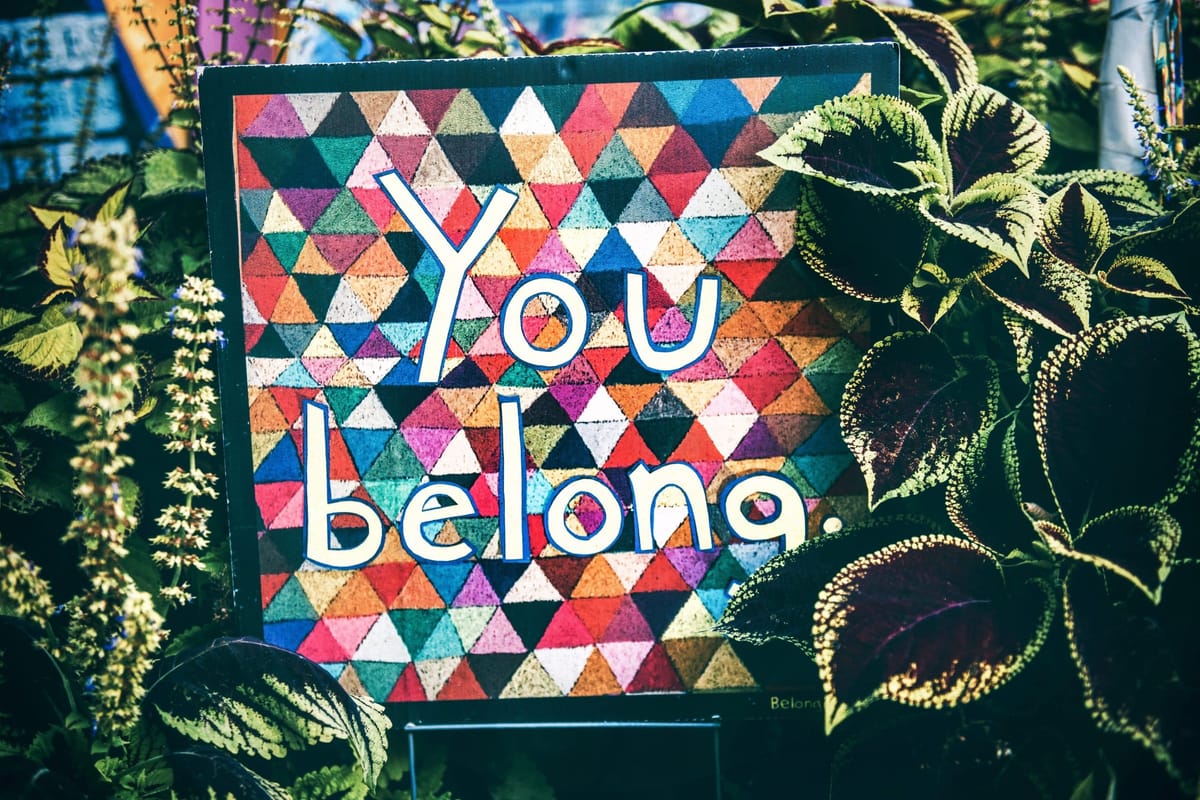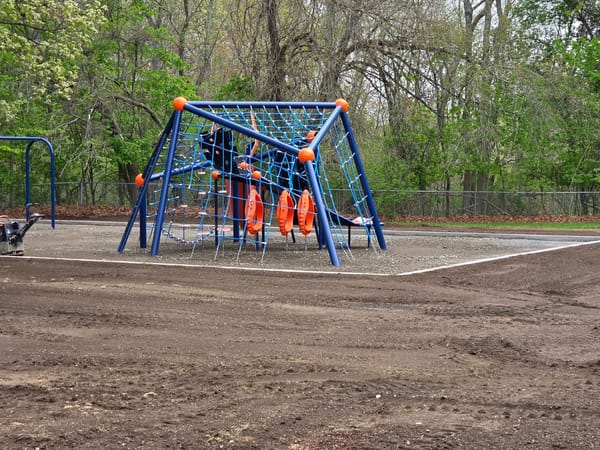Diversity, Equity and Inclusion in Burlington
Where are we coming from, and where are we going?


Recently, the term Diversity, Equity, and Inclusion (DEI) has become more commonly used. The events of Summer 2020 brought to a wider audience issues that have existed and been discussed in smaller forums for decades.
In September of 2020, a Director of DEI position for Burlington Public Schools was approved by Town Meeting, but many residents had never heard of DEI before that. So what is Burlington’s history with DEI, and how does that relate to the current state of affairs? Read on to find out.
What is DEI and Why is it Important?
At its heart, DEI is the idea that everyone should feel like they belong and are valued, regardless of their race, ethnicity, cultural heritage, skin color, LGBTQ+ identification, ability, gender, religion, age, etc.
Key to ideas of Diversity, Equity, and Inclusion at the organization or municipal level is the understanding that people feel more comfortable and valued when their leaders are representative of their context and experience. Here are a few key reasons:
- We’re more likely to form relationships with people who share a similar background - so, having a diverse staff of town employees increases connection across the community.
- Diverse leadership is more likely to consider a wider range of perspectives and experience when making decisions, thus making better decisions.
- People are more likely to participate in organizations where they see themselves represented. The more diverse staff and leadership is, the more likely it is people of diverse backgrounds will feel comfortable stepping up for these positions and offices when they become open.
- Seeing people from diverse backgrounds in leadership sends a message that leadership is open to everyone, not just people who look a certain way or come from a certain background.
Research has shown DEI efforts lead to better decision making and stronger business. For example,
- Forty-seven percent of S&P 500 companies currently have a Chief Diversity Offer (CDO) or equivalent.
- Gartner finds inclusive teams outperform less-inclusive teams by 12-50%.
- In businesses (and there are endless parallels between municipalities and businesses), increased diversity is found to increase innovation, financial performance, and retention, among other indicators.
The application of DEI ideas isn’t a list of boxes to check or a set of discrete actions. It must be woven into the fabric of everything a municipality or organization does. Research-based practices can be put in place to ensure these aspects are considered when publicizing open positions, hiring or appointing people to those positions, considering permits, and interacting with businesses and individuals in the community.
Why Can’t We All Just Get Along?
The most common argument against DEI is a variation of, “Why isn’t it enough to just treat each other with respect?”
While this is a noble goal, treating each other nicely on an individual level does nothing to repair the social and professional damage that has been done to marginalized groups over centuries of codified discriminatory practices, and this mindset fails to take into account the unconscious actions that create division between groups.
A common analogy used to explain DEI is that
- Diversity is invitation to the party
- Equity is making sure everyone can get there
- Inclusion is being asked to dance
Belonging, as is frequently added at the end, is the freedom to dance however feels true to you.
Traditionally, minority groups have been (many times quite actively) left out of decision-making, and therefore many policies and procedures fail to take diverse perspectives into consideration. The leaders involved might not be explicitly aware of this exclusion, but that doesn’t mean it doesn’t exist.
But I’ve Never Seen a Problem
Unfortunately, many incidents of bias are unreported. Those that are, often get explained away. Such incidents occur, and they range from overt name-calling to making fun of someone’s cultural food, accent, or customs. To deny these exist is to deny an individual’s lived experience and to truly fail to understand the definitions outlined above. Anyone wishing to know about reported incidents can simply ask the authorities. They won’t provide details, but can tell you incidents have been reported.
These incidents leave the victim feeling unvalued, unappreciated, and unwelcome. It’s understandable why someone who has experienced these aggressions in their own town would not feel welcome to become involved socially or civically.
But isolated incidents are only one part of the work of DEI. The practices advocated by DEI work to unravel the systemic issues that have been woven into the fabric of society such as access to housing, education, and employment opportunities. This takes education, training, patience, and an openness to hear from others’ experiences and accept their truth.
It also requires empathy - the ability to step into someone else’s experience for a moment and understand how it feels to walk around as them.
History of DEI in Burlington
Recent efforts to incorporate DEI in Burlington’s schools date back to 2013, when BPS began offering anti-bias, cultural proficiency courses and workshops for teachers through organizations such as IDEAS and Primary Source, and students became involved as well.* In a town with a 200-plus-year history, that isn’t particularly long, but this is evidence the issue has been on our collective minds for quite some time.
In 2015, the District Capacity Project’s subcommittee on Cultural Competence was formed, and in 2018, that committee - and a group of BHS and MSMS students - recommended that the district hire a Director of DEI. In the interim, BHS staff formed a VIEW Committee for anti-bias and cultural proficiency training among other issues; students began joining that committee in 2017.
In 2018, the District Equity Committee was formed; students joined in 2019 and community members, parents, and School Committee members joined in 2020. This committee drafted an Action Plan, which addresses the district’s needs in the areas of Staff, Students, Systems (including curriculum), and Hiring; in order to accomplish our goals, they strongly recommend a full-time Director of DEI.
In the summer of 2020, the full administrative staff received cultural competency leadership training, and the full BPS staff received common training regarding implicit bias, systemic racism, and cultural competence before school began. The following year, the School Committee participated in a workshop in DEI issues and developed their Equity Statement.
And in September, 2020, Town Meeting voted overwhelmingly in favor of funding a director of DEI position at BPS - a role which was filled in July 2021. The school district is in the middle of an Equity Audit now, to learn what we are doing well, and what we need to improve.
At the school district level, clearly a priority has been placed on bringing teachers, administrators, students, and the School Committee up to date on how we can ensure our schools are a place where every student and staff member feels included and welcome.
At the town level, we have not done as much work.
Following the murder of George Floyd, Select Board member Nick Priest read a statement at Town Meeting. DEI was discussed at some of the Select Board’s Strategic Planning Sessions later that year, and then in the fall of 2021, the DEI Subcommittee was formed.** This subcommittee is comprised of one select board member and several community representatives.
Where Do We Go From Here?
The DEI Subcommittee delivered the first of its quarterly reports to the Select Board on Monday, February 28, 2022. Their recommendations can be found here (item 416). The general intent of this update was to look at contracts and the Select Board’s mission statement to incorporate DEI messaging.
The hope is that the DEI Subcommittee and the Select Board will continue working together to bring research-based best practices to the town of Burlington, ensuring everyone who lives, works, and visits feels safe, valued, and welcome in our town.
To help your friends and loved ones learn more about DEI in Burlington, feel free to share this post.
Hear more about DEI in Burlington on our podcast, Burlington Buzz on the Mic.
*Many thanks to Martha Simon, who provided much of the information around the history of DEI in BPS.
**Thanks to Shari Ellis for providing the background on DEI work at the town level.






